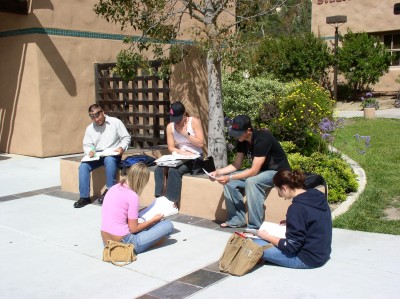Contextualized Learning and Learning Communities
Oceanside: 760.757.2121 x6521
www.miracosta.edu/learningcommunities

Contextualized Learning
Contextualized learning happens when the instructor makes meaningful connections between the course content and the students’ identities and interests. The instructor makes these connections by selecting course readings and designing activities and assignments that make learning more engaging, relevant, and transferable. A contextualized learning course makes connections to
- students’ academic and career interests and goals
- students’ experiences of identity and equity
- students’ broader awareness of ethics with a discipline or field
- students’ understanding of local and/or global communities.
Current Contextualized Learning Courses
ENGL 100 + ENGL 52 : “ChildDevelopmentStart”: Highly supported English for child development majors.
ENGL 100 + ENGL 52 : “HealthStart”: Highly supported English for allied health majors.
ENGL 201 : “Composition, Coding, & Cyborgs: C^3”: Critical thinking and composition for computer science majors.
Learning Communities
Learning communities form when a group of students takes two courses together, and the courses are linked to enhance the students’ experiences. Learning communities are meaningful because they help students make connections between courses, instructors, and classmates. Advantages of learning communities include the following:
- Students get to know each other well; they work together and with their instructors over the entire semester.
- Instructors overlap their lessons to promote students’ learning and skills across both courses.
- Many learning communities explore shared themes, readings, and/or projects that encourage students to extend their knowledge to their college, communities, and world.
- Students must enroll in both classes and attend both; however, the instructors teach their own course and have their own student learning outcomes and grading policies.
Current Learning Communities
“Mana I: Empowering Pacific Islander Communities (EPIC)”
“Mana II: Crossing Cultural Oceans”






